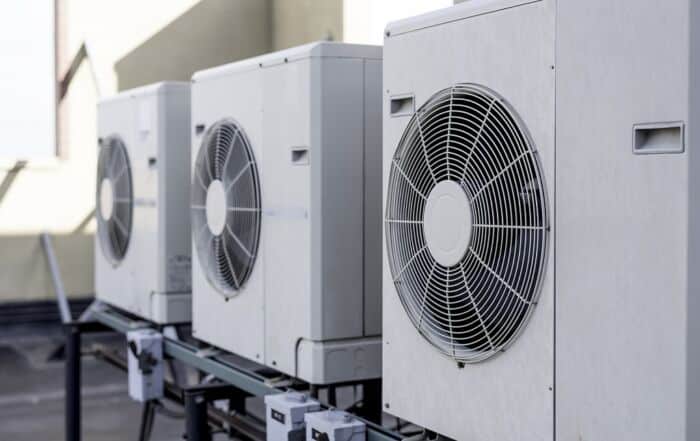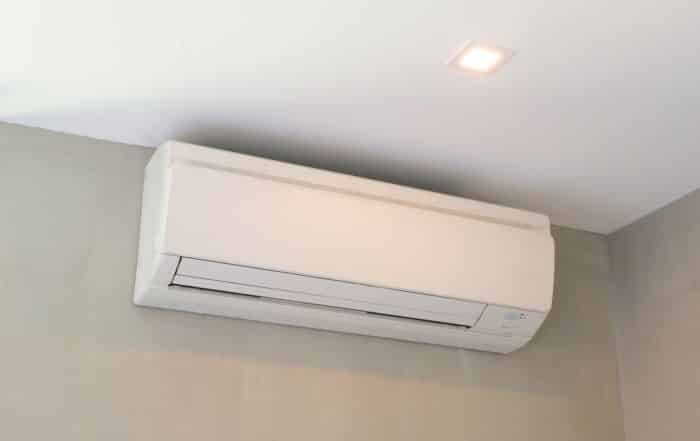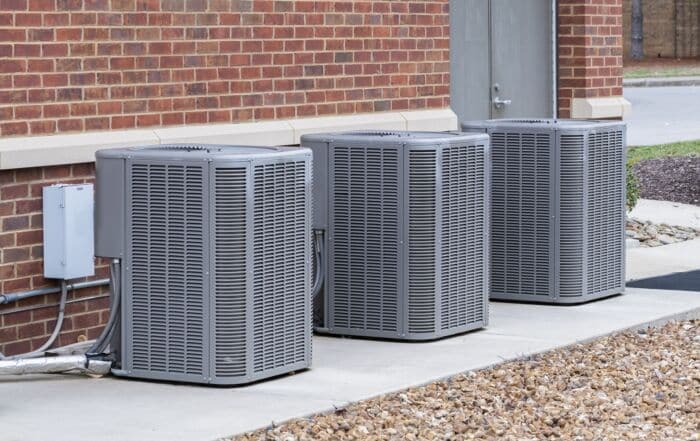When choosing the right air conditioning unit, there are many factors to consider when trying to determine which one is the best. Texas is no stranger to hot and humid summers. If you live in the Lone Star State, then you know that a central air conditioner is a must-have for any home. But how much will it cost to switch from a window unit to central air?
The answer depends on a few factors. The size of your home, the climate you live in, and the type of construction all play a role in how much money you can invest in air conditioners and energy costs.
If you're wondering on which type of air conditioning unit for your home, then continue reading!
Is it cheaper to run central AC or window units?
Central air conditioning systems are more expensive to purchase, but they can save you money on your energy bill in the long run. Window air conditioners, on the other hand, are less expensive to purchase, but they use more electricity and can only cool the room they are in.
If you want to cool more than five rooms, however, one central air conditioner will save you money in the long term. Central air conditioners are also more energy-efficient than window air conditioners, so you'll save hundreds of dollars on your electricity bill every month.
Does Central AC Save More Energy?
If you're wondering whether a central air conditioner is a lot more energy savvy than window types then the answer, quite simply, is yes. Central air conditioning systems are more energy-efficient than window air conditioners, meaning you'll save money on your monthly energy bill.
Central AC units save more energy than window air conditioners in two ways.
First, the compressor is located outside the home, so it doesn't have to work as hard to cool the air. Additional features like two-stage compressors and variable-speed fans also help central air conditioners run more efficiently.
Second, a central air conditioner is a central air unit that can cool your home more evenly because the cool air is distributed through a system of ducts. Window air conditioners can only cool the room they're in, so you might have to adjust to comfortable temperatures frequently.
If you're in the market for a new air conditioning unit and want to get a bang for your buck, central AC is the way to go. Investing in one will not only save money on energy bill each month, but you'll also be doing your part to help conserve energy.
Is a Central AC Unit Worth It?
If you're looking for an AC unit that can keep an entire home cool, a central air conditioning system is the best option.
Central air conditioning is different compared to other types of AC units because it's designed to cool an entire home at once. If you live in a climate where the summers are especially hot, such as Texas, central AC is the best option for keeping your home cool and comfortable.
While modern air conditioner units have become popular, such as portable air conditioners, it doesn't quite have the power to cool down an entire house. There are many portable air conditioner models out in the market today. Being a smaller-size air conditioner, they offer the same cooling power as a window type air conditioner without the hassle of installation.
Window air conditioning is just as good as both a central air conditioners and portable air conditioners, but can be costly to maintain. They can also be limited to only a single room, and may not be as durable. Setting temperatures with a central AC unit can also be done with more precision than a window unit.
One of the most common advantages of central air conditioning is how it adapts to the indoor temperature to get you that ideal temperature for your home. Central air conditioners can also reach more than just one room, making it perfect for homes with more than one floor.
Texas is a great example of a state where central air conditioning is the best option. The summers in Texas are notoriously hot, and window air conditioners just can't keep up with the demand. If you live in a climate like this, it's important to invest in a central air conditioning system if you want to stay cool and save money on your energy bill.
Typical Residential HVAC Cooling Load
Most U.S. homes have a cooling load that falls somewhere between 15 and 30 BTUs per square foot of living space. However, loads can differ significantly from one home to the next based on numerous factors including:
- The size, age, and orientation of the home.
- The amount of insulation in the walls, ceilings, and floors.
- The number and type of windows in the home.
- The climate in the region where the home is located.
For example, a well-insulated newer home in a hot, sunny climate will have a higher cooling load than an older home with poor insulation in a cooler climate. Therefore, it's important to determine the specific cooling load for your home before selecting an AC unit.
A professional HVAC contractor can help you determine your home's cooling load, and will recommend the right size AC unit for your needs.
How can I reduce my electric bill with AC?
There are a number of ways to reduce your electric bill with AC, but one of the most effective is to install a central air conditioning unit. Central unit AC systems are more efficient than even an energy star window air conditioner, and can save you money on your energy bills.
Another way to reduce your electric bill with AC is to use a programmable thermostat. Programmable thermostats can be set to turn the AC off when you are not home, or during times when you do not need it, such as at night. This can save you money on your energy bills, as well as reducing wear and tear on your AC unit.
AC units also come in different sizes, and it is important to choose the right size for your home. An AC unit that is too small will have to work harder to cool your home, and will use more energy. On the other hand, an AC unit that is too large will waste energy.
A smart thermostat is a great way to save money on your electric bill, as it can be programmed to turn the AC off when you are not home, or during times when you do not need it. Smart thermostats take this a step further, by learning your habits and adjusting the temperature automatically to save energy. For example, if you usually turn the AC off at night, the smart thermostat will learn this and will automatically turn off the AC at night. This can save you a lot of money on your energy bills over time.
Save Money On Your Air Conditioning Bills
Central AC is more efficient than window AC and can save you money on your energy bill. There are a number of ways to reduce your electric bill with AC, but one of the most effective is to install a central air conditioning unit. Central unit AC systems are more efficient than even an energy star window air conditioner, and can save you money on your energy bills.
Another way to reduce your electric bill with AC is to use a programmable thermostat. Programmable thermostats can be set to turn the AC off when you are not home, or during times when you do not need it, such as at night. This can save you money on your energy bills, as well as reducing wear and tear on your AC unit.
Finally, you can save money on your electric bill with AC by making sure that your unit is properly maintained. Regular cleaning and maintenance will keep your unit running efficiently, and will prolong its life. This can save you money in the long run, as well as ensuring that your AC unit is always ready to keep your home cool.
Contact us today to learn more about how we can help you save money on your energy bill!
Related Posts
Exploring Ductless Air Conditioning Systems for Small Spaces
If you’re a homeowner tired of sweating through sweltering summers, a ductless air conditioning [...]
Signs Your Air Conditioning Unit Needs Professional Maintenance
Imagine coming home on a sweltering summer day only to find that your air [...]
Common Misconceptions About Air Conditioning Usage and Costs
Air conditioning units are a staple in many homes, especially during the hot summer [...]


